Cultural Achievement Ceremonies are full of social work vibes in 2024
The VCU Office of Multicultural Student Affairs’ six Cultural Achievement Ceremonies each spring are celebrations of students’ hard work on their journey to graduation and an affirmation of their cultural identities.
And this year, there were strong social work vibes with four of the events, as five School of Social Work M.S.W. students and one alum were either speakers or assisted in a ceremony.
All five students graduated when the school held its Commencement ceremony on May 10, a few days after the Cultural Achievement Ceremonies.
- Aimee Layo was the student speaker and Amala Thomas the closing speaker at the Asian Pacific Islander South Asian American Graduation Ceremony. Reebha Aggarwal read the names of graduates who were being recognized.
- Ramiel Martinez was the student speaker at the Lavender Graduation Ceremony.
- Alum Ronnie Sidney II (M.S.’14) was the keynote speaker at the Accessibility Achievement Ceremony.
- Beck Oh, who serves as OMSA’s program manager for LGBTQIA+ Initiatives, planned the Lavender ceremony and the Native, Tribal and Indigenous Ceremony.
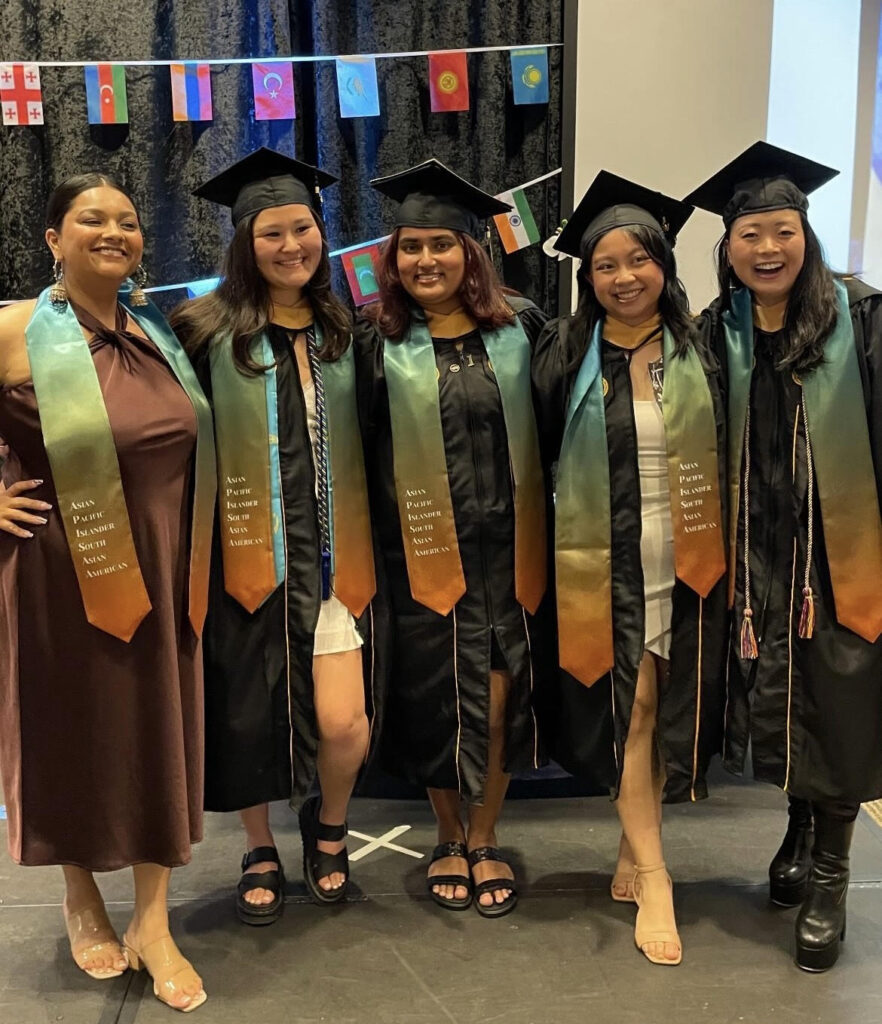
“I’m so grateful to the M.S.W. Program and how they have empowered me to do this culturally responsive work,” says Oh, who worked with OMSA while a graduate student. (OMSA also sponsors the Donning of the Kente Ceremony for candidates who identify as African American or Black and the Latine Achievement Ceremony for those who identify as Latine or Hispanic.)
Oh (School of Social Work Social Justice Award) and Martinez (Social Work Administration, Planning, and Policy Practice Scholarship) were also recognized by the School of Social Work as it honored students for the 2023-2024 academic year.
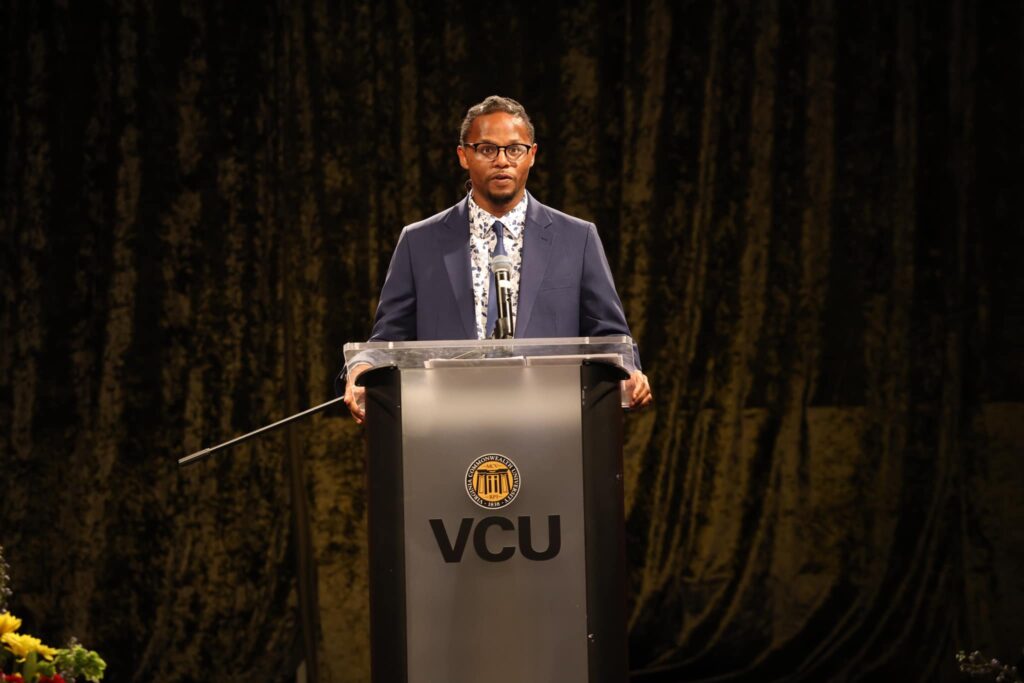
Sidney was featured in a VCU News story about his participation in the accessibility event, which ironically mirrors a semi-autobiographical graphic novel he published. In the book, “Nelson Beats the Odds,” Nelson is a special education student with attention deficit hyperactivity disorder who ultimately graduates at the top of his class and speaks at his commencement ceremony.
“When I graduated from VCU School of Social Work in 2014, with a 3.5 GPA might I add, I realized I succeeded not in spite of my learning disability, but because of it,” Sidney said in his remarks at the Accessibility Achievement Ceremony. “I found meaning in my circumstance and after I graduated, I honored seven of my former teachers who helped me along my journey.”
We asked the three student speakers for their perspectives on the ceremonies.
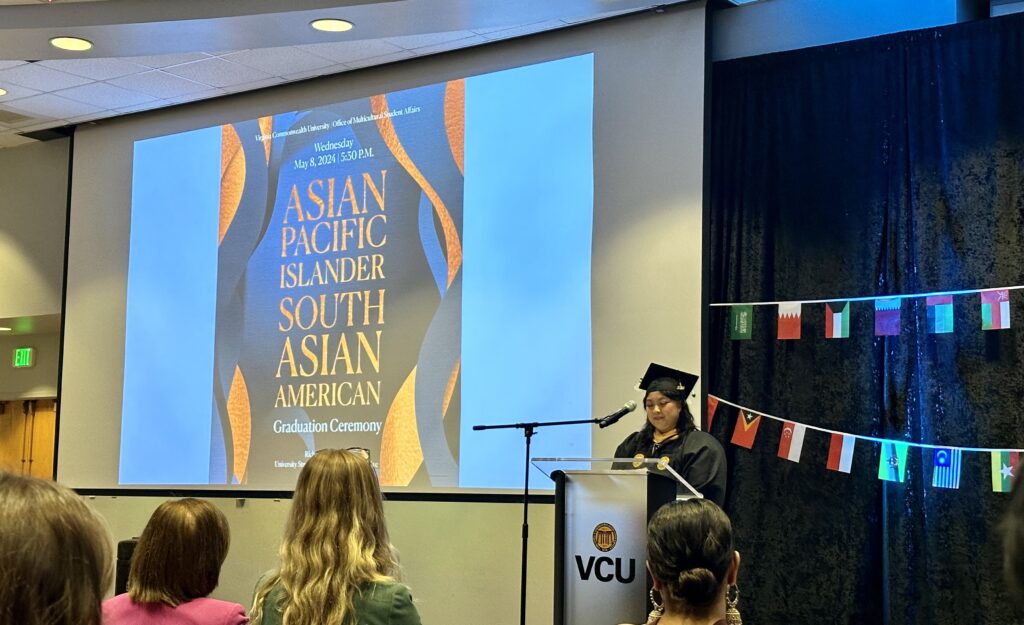
Why are special recognition events like the ceremonies important?
Layo: Having attended VCU for undergrad, I feel like I had a wealth of diversity around me, as I saw many different identities in my classes and participated in cultural student organizations. When I started grad school, however, I saw less representation of myself and therefore felt a sense of loss from my community. Cultural affinity groups and programming are vital to connecting students with similar backgrounds together and feeling that sense of community in order to celebrate their identities and organize for further representation and change. Speaking at the APISAA Cultural Achievement Ceremony allowed me to experience solidarity and share my appreciation for all of the hard work that my peers have accomplished in a personal way.
Martinez: I think that these events are important because they create space for students to be celebrated who are from under represented identities within academia. They also highlight the resilience, joy, and connection that is built among students who, despite the hardships of academia, are able to create community with others of similar identities. I’m so grateful to OMSA for creating these events that help us bridge across departments and across experiences to connect with others that share our identities and celebrate our grand accomplishments together.
Thomas: I was actually OMSA’s graduate assistant for two years, and I saw the incredible dedication and drive the staff had to create spaces such as the cultural achievement ceremonies for students like me. Not only does OMSA do CACs, but the office has various events during the academic year centered around the cultural heritage month being celebrated. Events such as student, faculty, staff mixers; panel discussions; and events in collaboration with the RVA community and more!! That was really why it was super important for me to invite my support systems such as family, friends and past supervisors to attend my CAC.
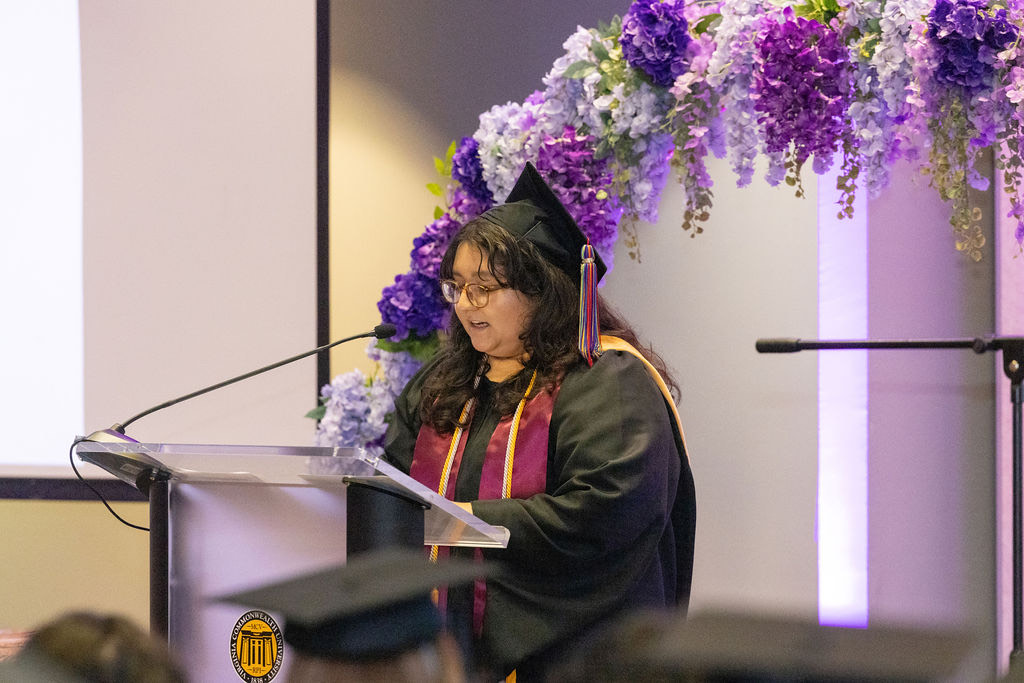
What was it like to be a speaker at your event?
Layo: It was truly an honor … It took me a long time to decide what I wanted to include in my speech and I thought for a long time about how to connect my personal experiences to the rest of the graduates. I settled on themes of mental health stigma in Asian American immigrant families, the importance of representation, and finding meaningful community wherever you go. I knew that some of these topics are not as openly talked about in my culture and that I was going to push some boundaries, but what I shared were validating words that I wish I had heard sooner in my life.
Martinez: It was such a magical and special experience, despite the nerves that it brought when giving my speech. Seeing all the people in the room, who are my friends, mentors, and chosen family, reminded me that this was why I came here – to build a community that holds me with so much love, compassion, and imagination.
Thomas: It felt like such a full circle moment. I had attended VCU for undergrad as well, so being able to see all my supervisors from the past six years come together and support me during the ceremony and cheer for me as I spoke is a moment I am forever grateful for. I thought about 18-year-old me entering VCU for the first time, and I just know she would be so proud and impressed with 23-year-old me.
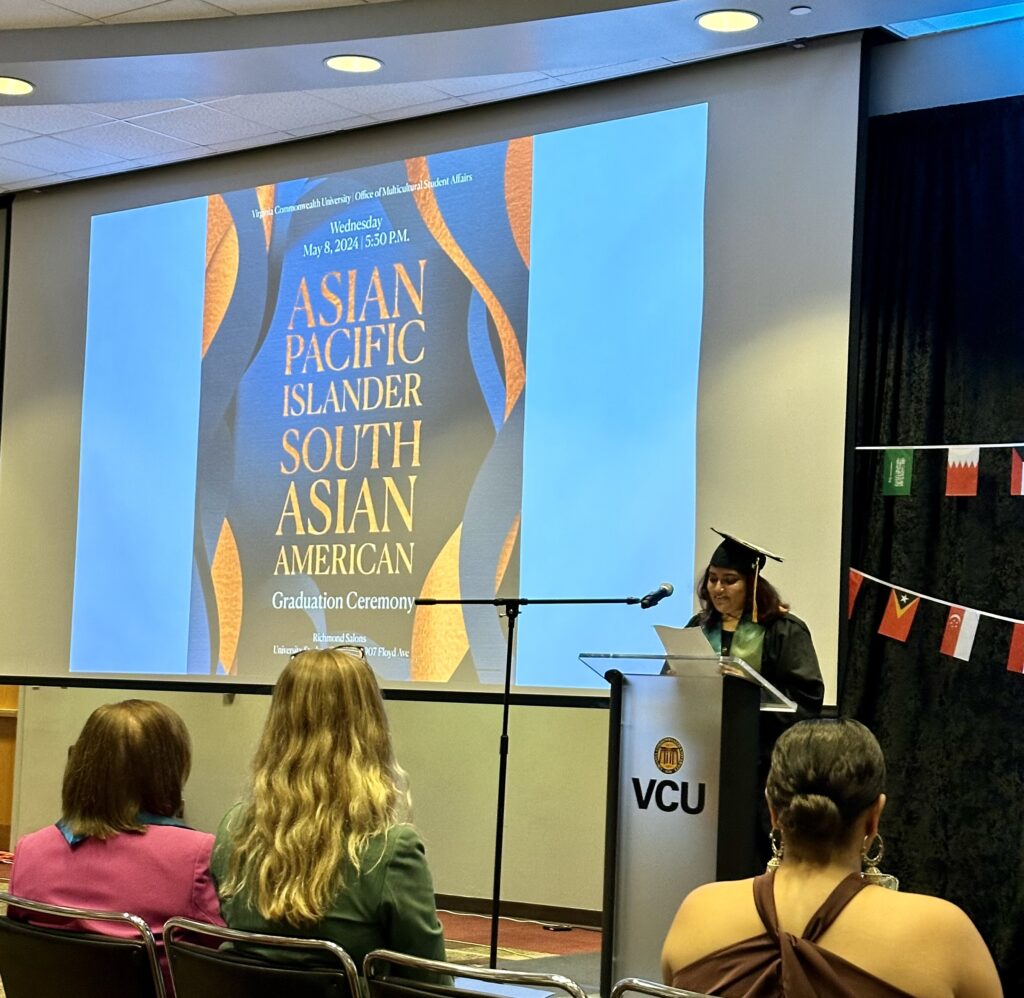
How did the experience showcase your social work values?
Layo: I began my speech by sharing that in the 2022-2023 school year, only 3% of M.S.W. students identified as Asian, with only 1.8% of B.S.W. students identifying as Asian (nationally, Council of Social Work Education, 2024). I used this statistic to emphasize the lack of Asian American social workers and rising demands for mental health services in our community. I told the graduates that I work hard to raise those percentages as I advocate for Asian American mental health, and that representation is important no matter what field they are entering.
Martinez: I think that this opportunity showcased parts of my social work and personal values of building community, celebrating and making space for moments of joy, even when the world has sought to push our identities into corners with no reprieve.
Thomas: Within the speech I did actually mention the NASW (National Association of Social Workers) Code of Ethics specifically pertaining to the importance of human relationships. I connected that with how it is going to be vital that we continue to build community and trusting relationships post-graduation. I reflected in my speech how I thought about my parents immigrating to the U.S. from India and how the community they built was such an important foundation for me growing up. And in general my current interests lie in DEI initiatives and community engagement, so this was truly a perfect opportunity to showcase that.
Categories Alumni, Awards and honors, Community, Education, Students